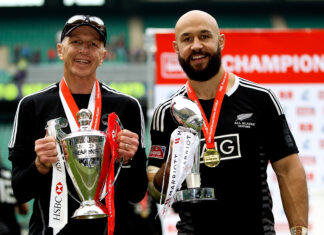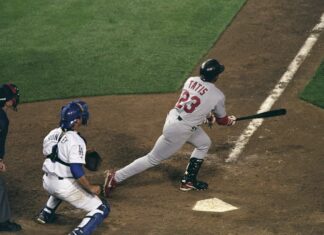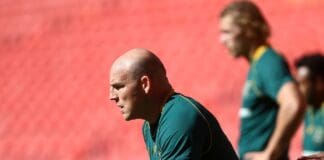Which NBA team has scored the most points in a playoff game?
These teams were on fire in the post-season.

Play Our NBA Name Game
Guess the players name in the fewest guesses. Share your score and beat your mates
How many times has the PGA Championship ended with a playoff?
These are the years the title went down to the wire.
Play Our Premier League Name Game
Guess the players name in the fewest guesses. Share your score and beat your mates

Who has been named rugby sevens player of the year?
These superstars have been pooled from five different continents.
Has an MLB player ever hit two grand slams in one inning?
Clearing the bases twice in one inning? Yeah, it’s happened before.
Latest Fan Poll
Who is the NBA GOAT?
- Other (33%, 1 Votes)
- Lebron James (33%, 1 Votes)
- Michael Jordan (33%, 1 Votes)
Total Voters: 3









































